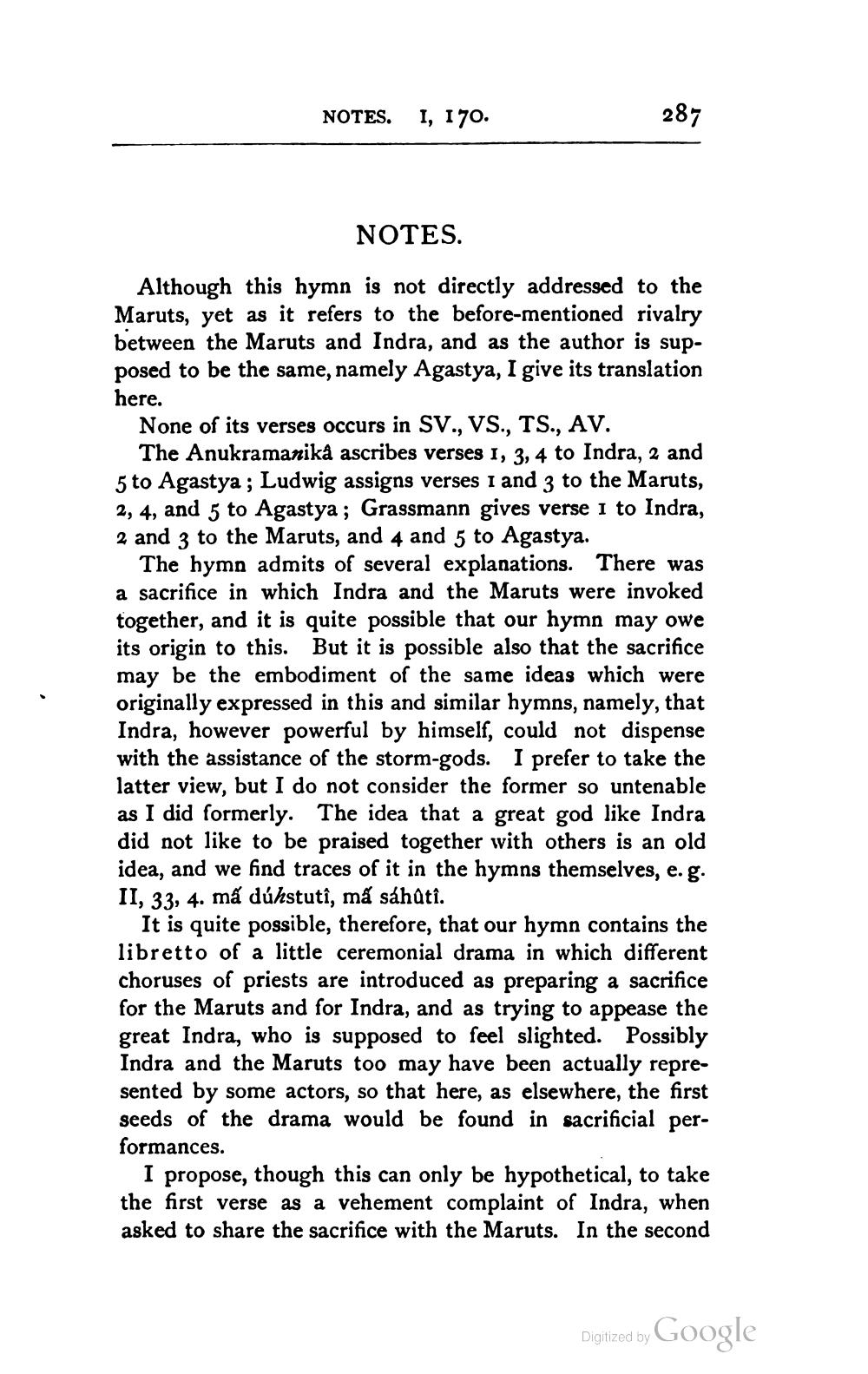________________
NOTES.
I, 170.
287
NOTES.
Although this hymn is not directly addressed to the Maruts, yet as it refers to the before-mentioned rivalry between the Maruts and Indra, and as the author is supposed to be the same, namely Agastya, I give its translation here. None of its verses occurs in SV., VS., TS., AV.
The Anukramanikå ascribes verses 1, 3, 4 to Indra, 2 and 5 to Agastya ; Ludwig assigns verses i and 3 to the Maruts, 2, 4, and 5 to Agastya; Grassmann gives verse i to Indra, 2 and 3 to the Maruts, and 4 and 5 to Agastya.
The hymn admits of several explanations. There was a sacrifice in which Indra and the Maruts were invoked together, and it is quite possible that our hymn may owe its origin to this. But it is possible also that the sacrifice may be the embodiment of the same ideas which were originally expressed in this and similar hymns, namely, that Indra, however powerful by himself, could not dispense with the assistance of the storm-gods. I prefer to take the latter view, but I do not consider the former so untenable as I did formerly. The idea that a great god like Indra did not like to be praised together with others is an old idea, and we find traces of it in the hymns themselves, e.g. II, 33, 4. má dúhstutî, má sáhatî.
It is quite possible, therefore, that our hymn contains the libretto of a little ceremonial drama in which different choruses of priests are introduced as preparing a sacrifice for the Maruts and for Indra, and as trying to appease the great Indra, who is supposed to feel slighted. Possibly Indra and the Maruts too may have been actually represented by some actors, so that here, as elsewhere, the first seeds of the drama would be found in sacrificial performances.
I propose, though this can only be hypothetical, to take the first verse as a vehement complaint of Indra, when asked to share the sacrifice with the Maruts. In the second
Digitized by
Digilzed by Google




